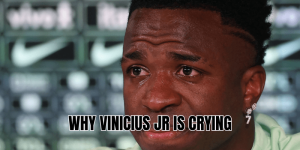Why did Zidane become a manager is a question that unlocks much more than a career move—it reveals a journey driven by passion, leadership, identity, and challenge. In this article, BraeckBall will explore the story behind Zinedine Zidane’s transition into management, what inspired it, how he prepared, and how his personality on and off the pitch shaped his coaching path.
From player to manager: Zidane’s next chapter
His playing career—at Cannes, Bordeaux, Juventus, Real Madrid, and with France—showcased technical brilliance, composure under pressure, leadership in key matches, and a deep footballing intelligence. These same qualities made many wonder: could he lead?
After retiring in 2006, Zidane took time away. He never fully left football: there were advisory roles, youth connections, and an evident pull toward having influence beyond scoring or passing.
The decision to become a manager was shaped by several underlying motivations:
- A longing to transform love of the game into guiding others.
- The desire to build and maintain winning environments, not only being part of them.
- A wish to use experience—of pressure, triumph, failure—to help others avoid pitfalls.
His journey toward coaching readiness
Zidane didn’t simply leap into a top managerial role. His path shows patience, learning, and acclimation.
Advisory and backroom work
- Shortly after retiring, Zidane served as a special adviser at Real Madrid, giving him exposure to managerial decision-making without being the person in the hot seat.
- He worked with the first team as a bridge between big decisions and squad dynamics.
Working with youth and Castilla
- In 2014, Zidane took charge of Real Madrid Castilla (the B team). This was crucial. It allowed him to build his coaching identity—communication style, tactics, man-management—with less media glare and huge egos.
- He learned to balance nurturing young talent and delivering results.
Stepping up to the first team
- By early 2016, when Real Madrid replaced Rafael Benítez, Zidane was promoted to manage the first team. He had earned respect inside the club and.
- He combined humility with confidence, not acting like someone who suddenly knew everything, but as someone who had earned the role.
Why he saw the role as natural—and necessary
There were personal, cultural, psychological, and situational factors pushing Zidane toward management.
- Leadership instinct: Throughout his career, Zidane was seen as a leader—on the field, in the dressing room. He wasn’t always the loudest, but he was often the calmest, the one people looked to in big moments. Management let him channel that fully.
- Desire to win in all dimensions: As a player, Zidane won nearly everything. Management offered a new sphere: winning as one’s own strategist, boss, motivator. It meant his legacy could expand into how teams play, how clubs behave, not just how he performed.
- Belonging to Real Madrid and French football: His ties with Real Madrid and with France meant he felt part of institutions bigger than himself. Becoming a manager at Madrid gave him a chance to help shape the club’s history. It was both gratitude and responsibility.
- Love for teaching and mentorship: In several interviews, Zidane has spoken about the joy of connecting with players, of helping them grow. Training younger players, being part of their breakthroughs, gives a satisfaction beyond scoring goals.
- Challenge & authenticity: Rather than seek a role for prestige alone, Zidane repeatedly emphasized doing things in his style. For example, when coaching Castilla, he said things like “I realized I loved it” because the first-team players engaged with him more, conversation was real. Managing big egos, pressure, media—that was his challenge, and he seemed to embrace it.
How his player-traits translated into management style
To understand why Zidane became a manager, we also need to see how his playing traits shaped his coaching. His transition wasn’t smooth in theoretical knowledge only—he brought from the pitch skills that proved invaluable:
- Calm under pressure: As a player, Zidane always showed composure in big matches—World Cups, Champions League finals. As a manager, he uses calmness to steady the team, especially when expectations are overwhelming.
- Tactical intelligence & game reading: His vision on the field translated into in-game adjustments.
- Communication & man-management: He doesn’t micromanage; he knows when to speak, when to listen. Players often mention respect for him, trust in him. He builds relationships, not just orders. That comes.
- Focus on team over individual stars: Although he has managed big egos—players like Ronaldo, Bale, Ramos—he emphasizes the group. He understands that even stars perform better when the team is unified, supporting each other.
Risks he accepted and why they mattered
Becoming a manager, especially at elite level, involves risks. Zidane knew this but accepted them:
- Expectations and scrutiny: Being Zidane means everyone watches and judges hard. Every mistake, every match is magnified. But he openly embraced that, believing he’d rather under-promise and over-deliver.
- Lack of managerial track record at first: Before Castilla and backroom roles, Zidane didn’t have long coaching CV. That can be a stumbling block. But by taking incremental steps, he mitigated that risk.
- Balancing relationships & discipline: Managing stars means strong personalities. He needed to be firm without alienating people. That balancing act comes up often in stories about his tenure.
- Managing continuous burden of legacy: Being one of the greatest players ever sets the bar impossibly high. For many ex-stars, failing as a coach tarnishes memory. Zidane seemed to accept that risk, ready to test himself.
Impact and early success: validation of choice
All the above helps explain why Zidane became a manager. But the story is more powerful because he succeeded—to a degree few imagined, and in style few matched.
- He won three consecutive Champions League titles with Real Madrid (2016-17-18), a record in modern times.
- He took La Liga and several domestic and international trophies.
- He earned respect not only for results, but for the atmosphere he created: unity, trust, clarity of purpose. Players often speak of him as someone who understands them.
These achievements, in part, vindicate why he decided to follow the path into management—in effect, doing what he always did as a player, but now shaping it with his philosophy.
Conclusion
Why did Zidane become a manager? Because he saw an opportunity: to take everything he loved and learned as a player—leadership, vision, resilience—and use them to build something bigger than any one match. He wanted to coach not just to win, but to mentor, to unite, to challenge himself and stay true to his style.
If you’re curious about more inside stories—how he managed egos like Cristiano and Ramos, or how he handled pressure in crucial matches—BraeckBall will dig dee, drop a comment on which coach’s journey you want us to explore next—maybe why X became a manager or how legends transition to the dugout.


